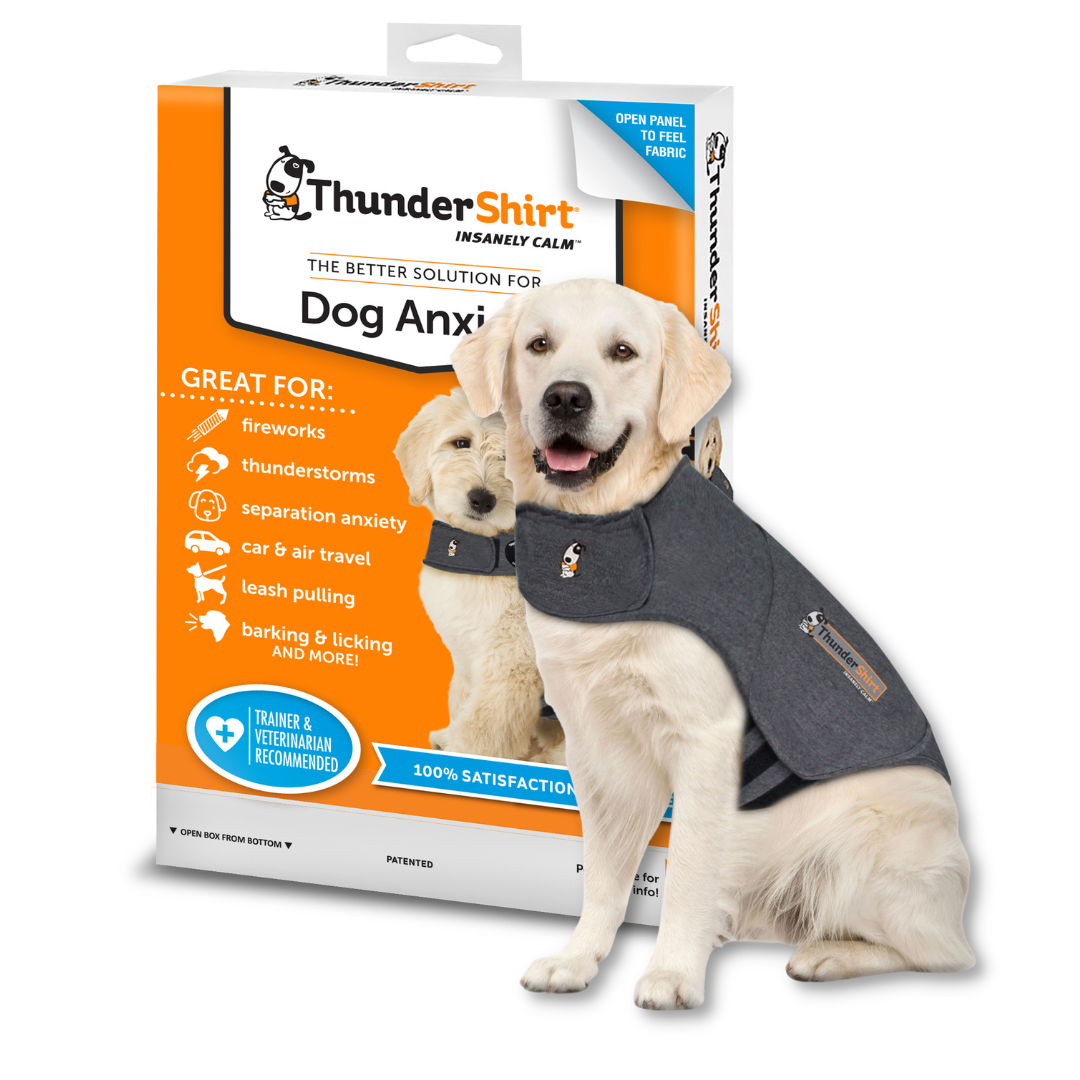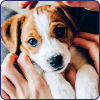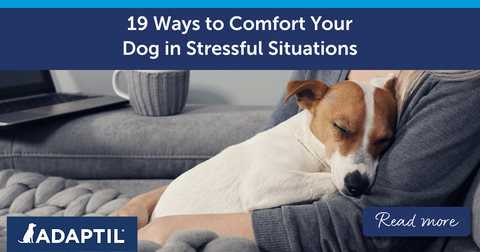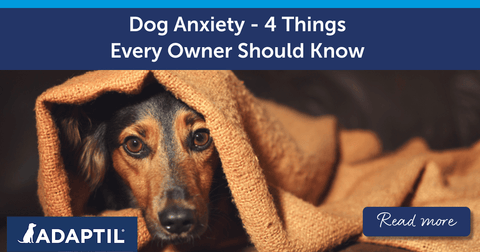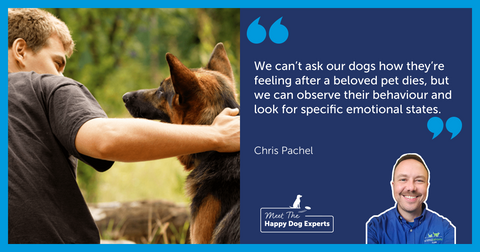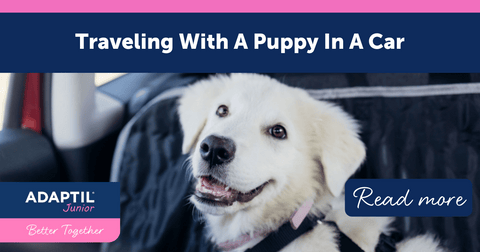Want to subscribe to our blog?

How to Re-Socialise Your Dog after the Pandemic
Written by Adaptil, published on April 18, 2023
As the world continues to deal with the effects of a pandemic, our daily routines and working patterns may change regularly, which, in turn, impacts our pets.
Many people's working habits are changing, hybrid working models are becoming more common place and dogs have had to adjust to having us around during the day. And although this has been great in many respects, it has meant that their freedom to greet different people, and interact with other dogs has been limited, too.
Even when we went out for daily walks, social distancing rules meant that new puppies may not have had the same exposure to other dogs, and may not have been able to attend socialisation classes at the right times.
So during times when we can relax restrictions a little, it's important to help our dogs to adjust and re-socialise after the pandemic.
What is a socialisation period?
There is a brief time, from around 3 -16 weeks (depending on the breed), when puppies are most receptive to social interaction. Before this time, their world revolves around feeding from their mother and learning to interact with their puppy siblings.
The socialisation period is the time when puppies start to discover the world around them, experience different situations, discover new smells and sounds and gain confidence as they encounter things that will happen in their everyday life. This is also the time when a puppy is usually adopted by a new family, and when a big adjustment occurs.
Have you joined the Puppy Program? Take a look for more expert tips and advice!
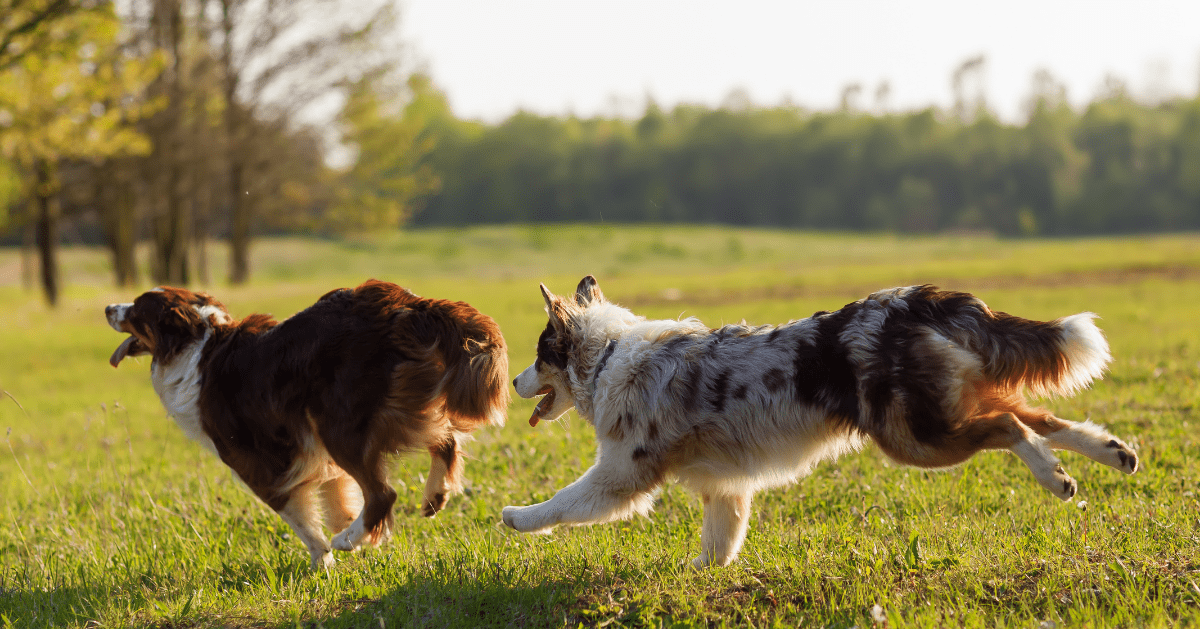
How can I help my dog to adjust?
If your dog was unable to attend regular socialisation sessions with other dogs during the pandemic, don't despair there are ways that you can help your dog socialise and adjust to the big world outside. Calm,positive, reward-based trainingcan still be undertaken to prepare them for their life ahead.
13 tips for re-socialising your dog
1. Help them to experience different things at home
- Get them used to daily noises and sounds; play radio or TV, run the washing machine and ping the microwave. There are numerous sounds available from a sound library that you can also play to your pooch; a crackling fire, sounds of the forest with birdsong, rain and thunderstorms, and more.
- Change your clothes regularly! You want to get your pooch used to seeing you in different guises in a t-shirt, in a jumper, wearing sunglasses, and in a coat and hat. This will help them prepare for all occasions!
- Let them experience walking on different surfaces; if you have a soft carpet throughout the house, they may find it strange to walk on a hard pavement when they go out. Make sure they try out walking on hard floors, grass, concrete, soil etc.
2. Get them used to seeing masks
Mask wearing may be around for a while yet, so ensure your pooch is used to seeing people in masks; wear one at home for short periods of time and praise them for keeping calm. This will help when you take your dog out into the big world or when a visitor arrives wearing a mask.
3. Meet lots of different people
When meeting new people, ask them to approach in a controlled manner without startling your dog. Meeting lots of different people (from crawling babies to elderly people, to delivery drivers andnext-door neighbours) will expose your dog to different scenarios.
4. Get them used to their outdoor apparel
Even when indoors, get your dog used to wearing a collar, lead and a muzzle (if required). Remember never to leave them alone in case the lead gets caught or tangled this can be dangerous for your dog.
5. Introduce them to new outdoor spaces
Start taking them out to less crowded places so that they can hear traffic in the distance and get used to other people and dogs passing. You can gradually build this up when they get more confident.
If you live near a busy road with large vehicles passing by, perhaps take them to a quieter place by car this will help them adjust and hopefully they will not be startled when a lorry or bus passes by.
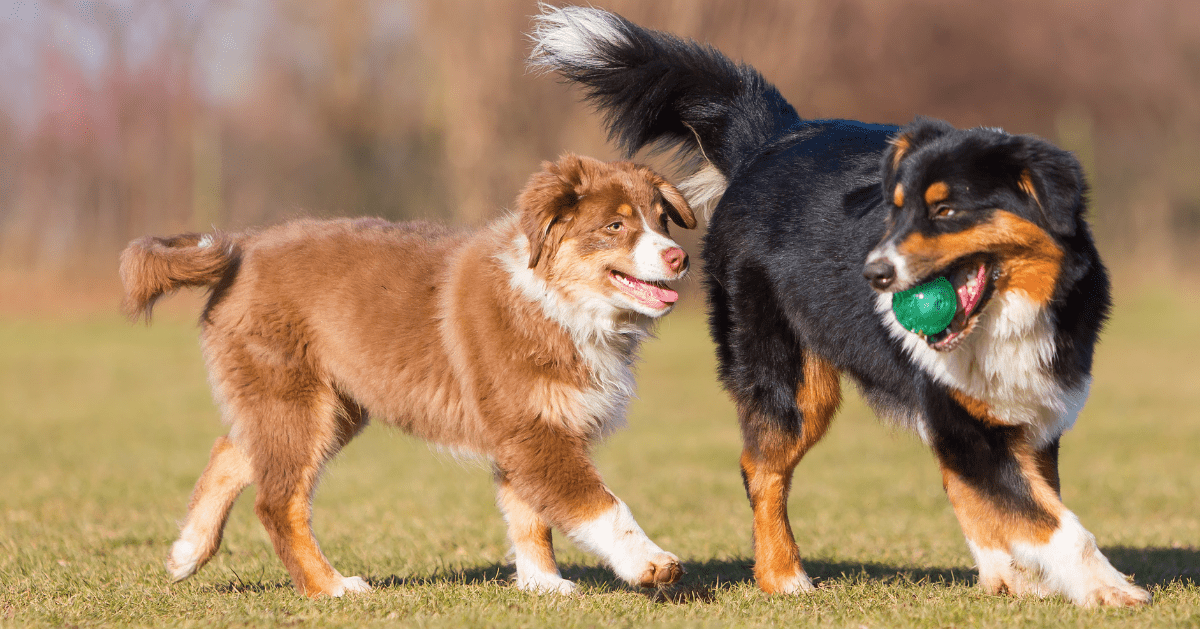
6. Arrange playdates
Give your dog opportunities to socialise. Arrange a playdate with another dog meet with family and friends in a place where they feel comfortable and then build up to meeting other doggie friends in the park.
7. Encourage good doggie manners
Teach them to be polite around other dogs and remember to reward good behaviour. If they show signs of being nervous or anxious, remove them from the situation and try again another time. Never force them to interact with other dogs and it is always best to keep them on a lead until you are confident that they are relaxed and happy to have some doggie fun.
8. Give them some time alone
As restrictions are removed, you may have to go back into an office or out to work;startpreparing your dog for spending time on their ownby creating a safe space for them and gradually build up the time when they are left alone. This should help avoid any separation anxiety when you do have to leave them on their own.
9. Consider outside help
You may need to consider doggy daycare or a dog walker to break up the length of time your dog will be on their own. If using a walker, make sure they are introduced well in advance so your dog feels comfortable and safe around them.
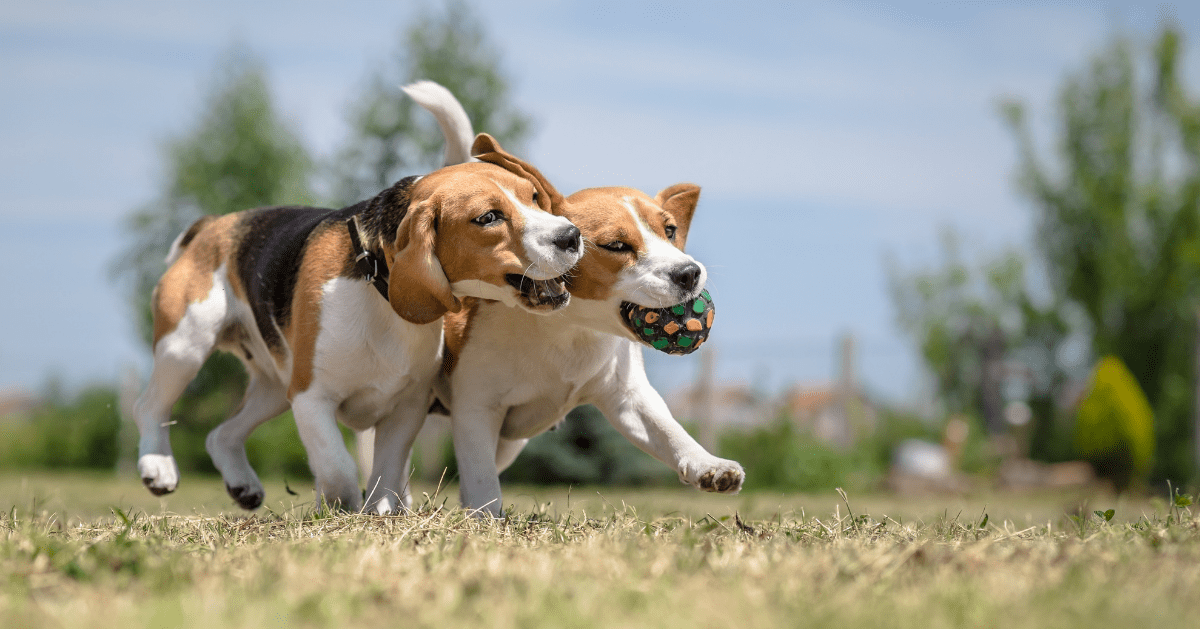
10. Keep an eye on your dog's body language
Do they seem anxious when you take them out for a walk? Are they interacting successfully with other dogs? Common signs of anxietyare a tense body, wide eyes, alert ears, lip licking, yawing, or holding up a paw for your attention. But if their body is relaxed and their tail is wagging softly, you can be sure they are taking everything in their stride.
11. Be aware that your dog might need extra support
Remember that if your dog is going through adolescencethat they may need some extra time and support as they move through this phase. Much like humans going through their teens, this period can be a time of change for dogs and they'll likely need even more patience.
12. Prepare them gradually
Prepare your dog for re-socialisation gradually and don't force them to confront situations they are fearful of. Be realistic about your dog's personality and what they are comfortable with.
13. Don't be afraid to seek advice!
If your dog has developed new, unsociable, behaviours during the pandemic or you are concerned about how they will cope with a change in routine after the pandemic, seek the advice of your vet who may refer you to an accredited behaviourist. It is better to seek help sooner than later, as waiting until behaviour becomes problematic can make it harder to change.
Using an ADAPTIL Calm Home Diffuser in the home will help your dog adjust to change. ADAPTIL provides an appeasing message of comfort which can help a dog as they face changes. An ADAPTIL Calm On-The-Go Collaris an excellent solution to help your dog stay calm and adapt even outdoors in situations like loud noises, and training.
{{cta('c96448ed-46e0-4317-bec3-cbe2dcb018a1')}}
Following our expert tips will help to ensure your bond with your dog goes from strength to strength.
Make sure to join our community for weekly advice from our dog behaviour experts as well as product offers and competitions.
 Related Posts
Related Posts
Legal notice The information collected is intended for Ceva Santé Animale and the group in order to manage your requests. This information can be shared with service providers in order to organize their management. In accordance with the General Data Protection Regulations, you have the right to access, rectify and limit the processing of your data. You can also, in certain cases, object to the processing, withdraw your consent and request the deletion and portability of your data. For any request in relation to your personal data, please visit this page.




















